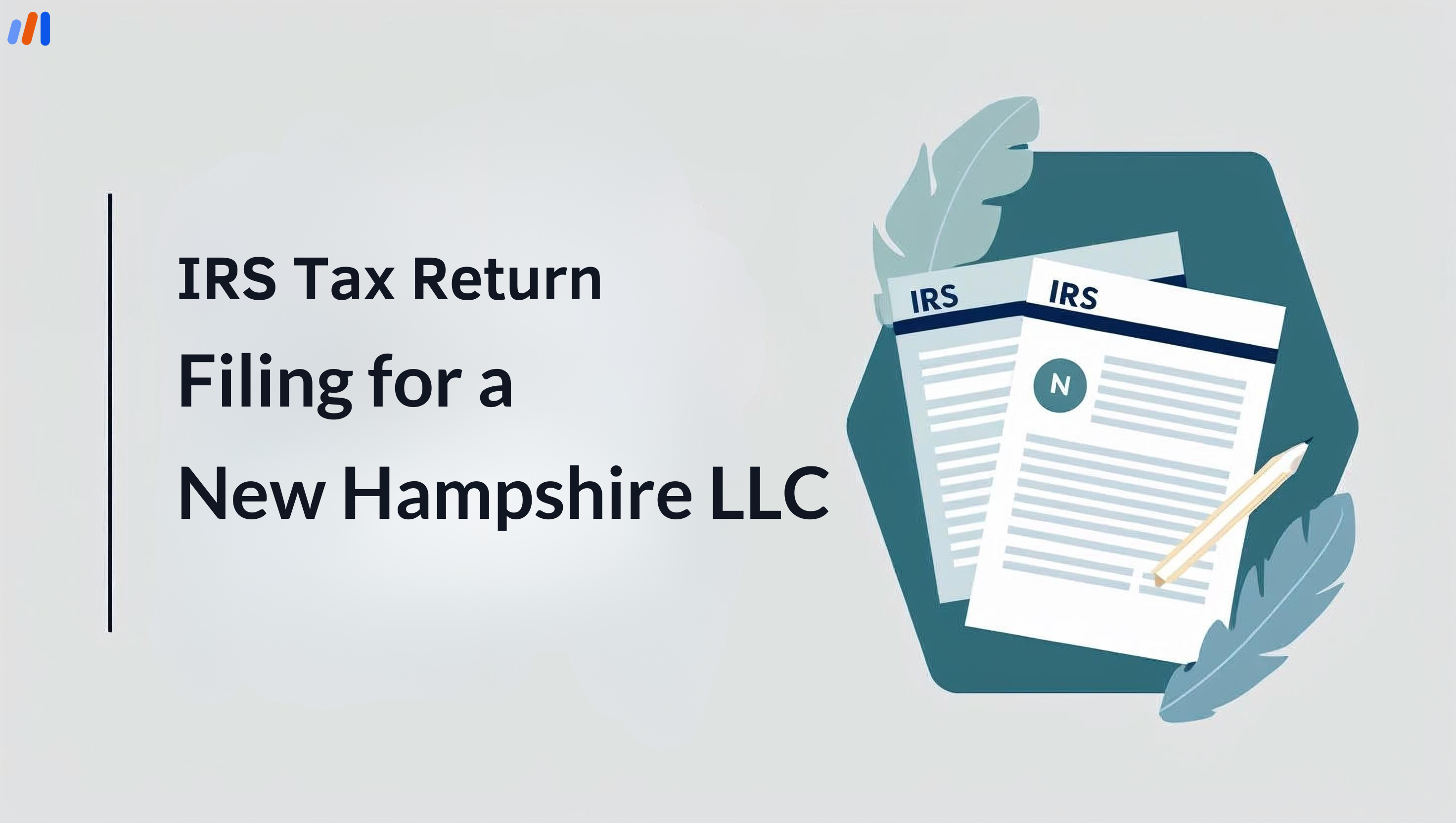The transfer of ownership of a Limited Liability Company (or LLC) is a lawful as well as a business process that deals with several intricate procedures and observance of legal norms and requirements.
Whether you earn money from his/her ownership sale, bring in another partner, or the writer’s case, ownership passes via other life happenings (such as death, etc); all of these are numerous and complicated, darn so many steps involved in each just to ensure that everyone is safe and that everything is done properly.
Here is a more elaborate guide on how one person can properly transfer LLC ownership to another for the interested parties.
Understanding LLC Ownership
One important thing before being able to engage in the process is to be aware of what’s being defined as LLC ownership. For us to further the LLC ownership transfer process, membership interests will need to be defined. Ownership is typically expressed using a percentage of ownership in the company. And of course, those interests are usually defined as:
- Distribution of profits and losses: The share each member gets among the profits or losses.
- Voting rights: The share each member gets about presence in business activities.
- Management functions: A member can either be actively involved in the running of the business daily; or be a passive investor.
The ownership interests of LLCs can be transferred, sold, or assigned to another member only according to specifications provided in the operating agreement of the LLC.
Why Transfer LLC Ownership?
Ownership transfer can arise due to several issues such as:
- Selling the Business: The current owner may want to sell their share of the business to another person or entity.
- Adding New Members: A business may seek new investors or partners to join and help grow the business.
- Retirement or Exit Strategy: An owner may retire and transfer their interest to family members or other partners.
- Life Changes: Divorce, death, and other events are sometimes sufficient to initiate the transfer of ownership.
- Estate Planning: If the ownership is part of an estate, it may be passed on to heirs or beneficiaries.
There may be varied methods of approaching each of the scenarios but one common factor must be adhered to. That is all transfers must be done bearing in mind the provisions of the operating agreement of the LLC or the state statutory provisions in its absence.
Steps to Transfer LLC Ownership

1. Review the LLC Operating Agreement
An LLC operating agreement is the governing document of an LLC that prescribes its features and operation about a transfer of interest. The following provisions will be available in this document:
- Transfer restrictions: Many LLC operating agreements can restrict who can transfer or purchase ownership interests. A few LLCs make these transfers of ownership a family affair only or existing members. Some, however, transfer such interest to persons upon the approval of the other members.
- Ownership transfer: The unanimous or majority votes of existing members for ownership change transfer have to be achieved in most agreements.
- Ownership Transfer: In these LLCs, procedures exist that relate to transferring ownership of the business (such as buyout clauses).
- Transfer valuation: The agreement may sometimes determine the method that will be used to value the ownership interest to ensure that a fair price is agreed upon on transfer.
Due to the absence of an operating agreement, state laws and default statutes governing an LLC shall control the transfer. In respect to these states, most of the time a law that regulates ownership changes in an LLC does not allow changes without the consent of all members.
2. Determine the Value of the Ownership Interest
Before the transfer of ownership, the value of the interest of the LLC being sold or transferred has to be ascertained. This can be accomplished in some ways:
- Book value method: This is the simplest technique that seeks to value an LLC by using primary financial-shown information such as its net worth, assets, and liabilities.
- Market value method: A third party’s perspective which will determine the other potential buyer’s price when purchasing the business at its current market conditions is put in consideration.
- Appraisal method: It is recommended to hire a professional business appraiser rather than trying to enter a real estate appraisal, as in this case within the LLC more skilled approach is required especially if the said LLC is complex and has considerable assets and/or intellectual properties.
Also, it is necessary to note how the valuation was arrived at and how it was arrived at so as not to raise umbrage in the future. In case the operating agreement contains such methods, the rules governing those methods should be followed.
3. Obtain Approval from LLC Members
In most cases, transferring ownership requires permission from the active members of the LLC. The operating agreement shall probably explain the process for obtaining approval. Steps in this process may include:
- Formal vote: LLC members vote on the transfer of interest. This is by the agreement and this could be either a unanimous vote or a majority vote. In very few circumstances the agreement may specify that a supermajority stake is required for a transfer, such as 75%.
- Written consent: If the members of the LLC are not in physical meetings, this could require the members to sign a written consent form or resolution sanctioning the consent to effect the transfer.
If the ownership transfer is to a third party (another individual or company), it is free to reach an agreement where they have the right to buy the ownership interest before it is offered for sale to outsiders.
4. Prepare the Transfer Agreement
The transfer agreement is the most important document that elaborates on how the ownership of the business will change hands. This document should cover:
- Name and description of the parties: Include the names and roles of the current owner and the new owner.
- Reservation of an ownership interest: This should specify the percentage of the LLC being transferred, whether it is a specific unit or a percentage of profits and losses.
- Price or conditions of the transfer: Where applicable, explain the total price that has been agreed upon and whether it will be a lump sum payment or broken into installments. If the transfer is a donation, this should be indicated as well.
- Liability assumptions: Indicate whether the new owner shall take over any existing liens or other liabilities of the LLC.
- Date of effect: The date on which the transfer will take effect.
- Signatures: Both parties will sign the agreement. As most requirements will also specify a witness or notary this may be needed, too.
The transfer agreement is a legal record of the transaction and may be used to determine the parties’ rights in the event of a dispute.
5. Update the LLC Operating Agreement
In each of its transfers, the amended operating agreement of the LLC that was transferred should be the operating agreement that is currently held by the new member. Some important changes are necessary: Key updates may include
- New member: Who is the new member, and what is his or her share?
- Percentages of ownership by each member: Ensure that every member of the group has successfully altered their percentage of ownership for whichever respective member follows.
- New member’s rights and responsibilities: There may be even different rights to vote or participate and such things can be recorded in the operating agreement of the LLC which is now being prepared.
Such a revised agreement secures a common understanding of the changes to the ownership structure among the members and prevents the company from unnecessary legal action.
6. Notify the State Authorities
Grievances may arise at the very edge of completion if any of a state’s laws do not require LLCs to showcase and inform about such transfers any evidence that the government has received. Grievances may arise at the very edge of completion if any of a state’s laws do not require LLCs to showcase and inform about such transfers any evidence that the government has received. Generally, this entails:
- The issuing of amended Articles of Organization: It is crucial to notify the state of the new member and its details.
- Issuing an annual report: Depending on which state and its requirements, an annual report may be necessary containing the new alterations highlighted.
There are different requirements on what documents are filed in states, what fees are likely to come with such documents, or what filing requirements exist and so, matters such as the business filing office of the state should be contacted concerning these matters.
7. Notify the IRS and Update Tax Records
Transfer of ownership could have tax consequences for both the LLC and the members. Some critical areas include the following:
- Changing The Responsible Party: It is required to inform the IRS via Form 8822-B if the registered agent in charge of tax reporting for the LLC changes.
- Taxes review: If the ownership changes and owners from a single member become many members and thus the structure of the LLC is changed, then this might affect the tax status of the LLC in question.
- Paying taxes on the transfer: There may be capital gains taxes or other tax consequences related to the transfer of ownership.
Seek the guidance of a tax details specialist to avoid tax-vexious consequences over negligence of the extent.
8. Update Business Licenses and Contracts
There will be some business records that will require modification in the event of an ownership transfer. These include:
- Bank accounts: The new signer permission should be placed on the LLC’s accounts when there is a change of management
- Business licenses and permits: If the change in ownership is substantial, then it may be imperative to contact the local or state-related agencies for business license and permit updates
- Liabilities with vendors and clients: These are the clients, business partners, or vendors that need to be alerted about the ownership transfer, especially if their contracts are dependent on the ownership structure of the LLC or the new owner will be dealing with them shortly.
These accounts and records have to be updated for purposes of an orderly succession of business operations as well as regulatory requirements.
9. Conduct a Closing Meeting
Besides this meeting, each Messrs should also finalize the transaction with a closing meeting with those involved in the completion of the transfer of the contract. This meeting should:
- Complete the handover documents: Each party in the sale agreement must ensure that the contract document is properly completed as per the requirements of the transfer agreement including relevant signatures and document types that allow filing.
- Resolve the financial commitments: Settle all finances relating to the purchase transfer that are left out.
- Establish future activities: Identify ways through which the transfer will affect business operations and indicate that the transfer has attained all legal administrative and taxation requirements.
The meeting has been soundly referred to as a closing meeting since no more actions are expected after the meeting and all position holders would have been comprehensively informed and the business transfer formally occurred.
10. Obtain the Expert Help
When dealing with change of ownership of LLCs many procedures are likely to be involved as well as impacts of law and tax that might emerge. It is preferably prudent to reach out to:
- Attorney dealing in business contracts: to ensure that the transfer is done smoothly and does not breach any laws in the traditional sense or go against specifics in the operating agreement of the LLC.
- Taxation experts: since the transfer will also attract tax consequences managerial taxes.
- Certified business appraisers: To appraise ownership interest correctly, appropriate certified business appraisers are needed.
It is possible to minimize risks, guarantee adherence, and facilitate the transfer procedure with the help of such experts.
Key Considerations
Before you can transfer ownership of an LLC or limited liability company, there are several steps that you must follow to make the whole process feel authentic. Note that you have to:
- Assess the operational agreement of the LLC.
- Get the consent of the members.
- Provide a fair estimate for the stake.
- Prepare a detailed agreement for transfer.
- Inform the relevant authorities and amend the records of the business accordingly.
Conclusion
An LLC may be transferred ownership in portions and it bears repeating that a great deal of attention is paid to the legal resources, finances, and administration of the firm.
Also, precise procedures must be followed when transferring ownership since the members make the transition, as in the case of a sale of the interest or the admission of a new member.
From consideration of the consent of the members to changes in the records of the state and notice to the IRS, all these have to be thoroughly done.
The right way has been well-adhered to and the originality and the continuity of the firm have been maintained without problems.
EasyFiling highlights legal compliance in the Ownership Transfer Process and ensures adept submission of state records and amendments of the business records about the transfer of interest.
File Your LLC Today
25$ off with a coupon
Lock in EasyFiling's transparent rates and get lifetime compliance support at no extra cost.
Get Started Now








